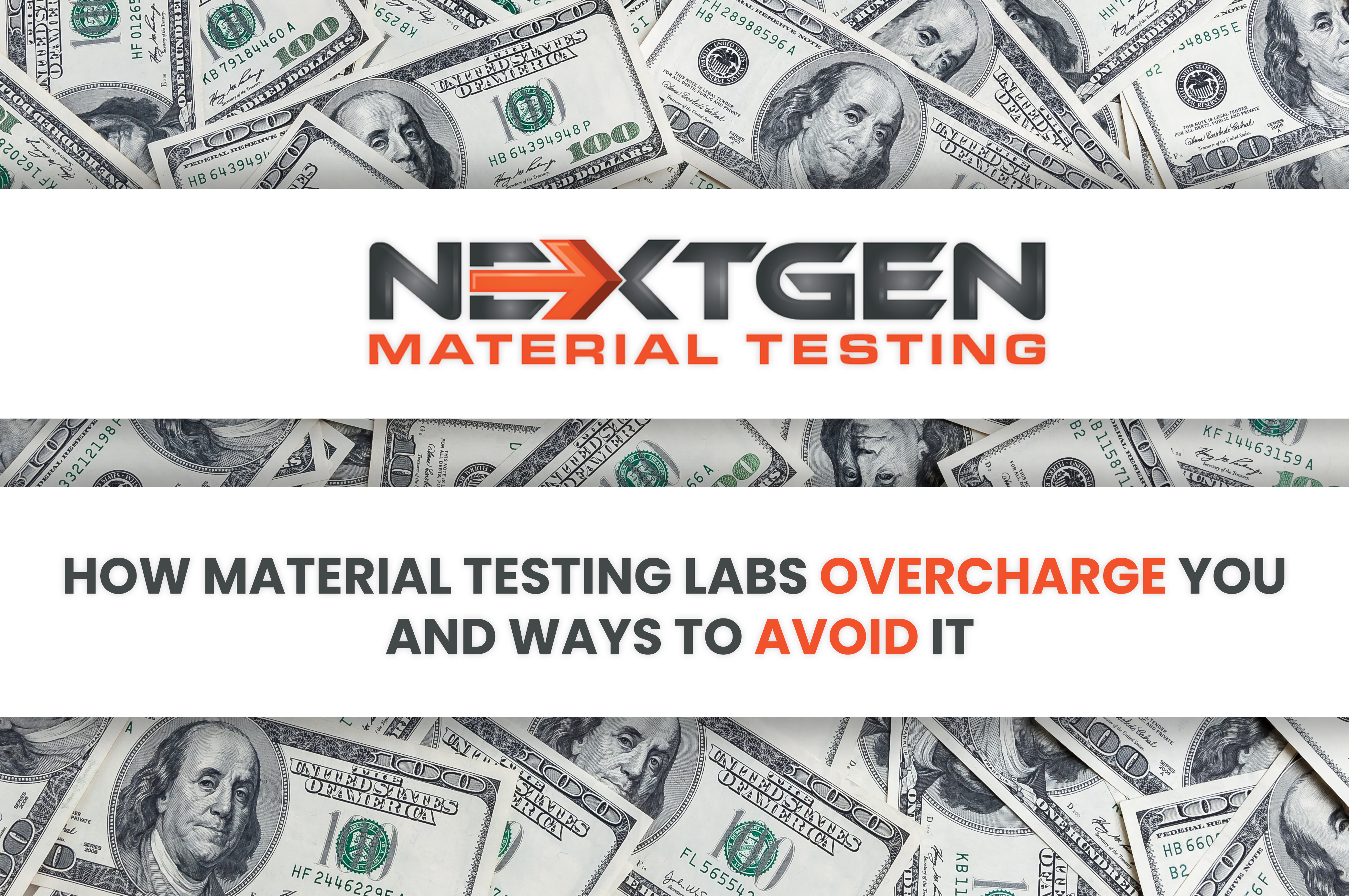Companies and institutions working with materials — including manufacturers, quality testing labs, research institutes, and numerous industries — often rely on independent material testing laboratories to verify product quality as well as compliance. These external labs operate with their own policies and pricing structures, which can sometimes lead to unexpected or inflated fees.
Overcharging has become a common problem, affecting businesses of all sizes across many industry sectors. Despite its prevalence, many organizations remain passive, choosing not to address these inflated costs. This approach can be costly and impact profitability. In this article we will cover useful insights into how these excess charges occur and strategies for effectively communicating with material testing laboratories.
What Are Material Testing Laboratories?
Material testing laboratories are specialized facilities dedicated to analyzing and verifying materials properties. Their primary role is to assess the quality, safety, and compliance of materials to guarantee that they meet industry standards and perform as expected in their intended uses. In sectors where product integrity and user safety are directly affected by the reliability and safety of materials, these laboratories are considered a necessity.
Functions and Importance
Material testing laboratories play a key role in maintaining high standards of production and research. First, they conduct quality assurance to confirm that materials conform to specified requirements, which helps manufacturers deliver reliable, durable products. Additionally, these labs are integral to regulatory compliance by making sure materials meet legal standards set by industry authorities. This compliance is critical for companies looking to market their products legally and responsibly. Material testing labs also contribute to failure analysis, investigating the root causes of material failures to prevent similar issues in the future. In research and development, labs support the innovation of new materials and products by providing data that drives improvements in material composition and performance.
Testing Methods
To perform these functions, material testing laboratories apply a number of specialized testing methods. Mechanical testing evaluates how materials withstand forces such as tension, compression, and impact, providing insights into their strength and durability. Chemical analysis identifies materials’ composition, verifying purity and detecting harmful contaminants. Thermal analysis assesses how materials react to temperature changes, which is particularly important for applications exposed to extreme heat or cold. Another key area is non-destructive testing (NDT), where methods like ultrasonic testing and radiography are used to detect internal flaws without damaging the material.
Collaboration with Other Establishments
Material testing laboratories collaborate with manufacturers, research institutions, regulatory agencies, and quality assurance organizations. This collaboration supports the development and validation of new materials with better properties, allowing industries to innovate safely. Laboratories are also instrumental in establishing industry standards by contributing to the creation and refinement of standardized testing procedures. Through these partnerships, they help guarantee product safety and reliability, providing manufacturers with data that guides production decisions and increases product durability.
How Material Testing Labs Overcharge You
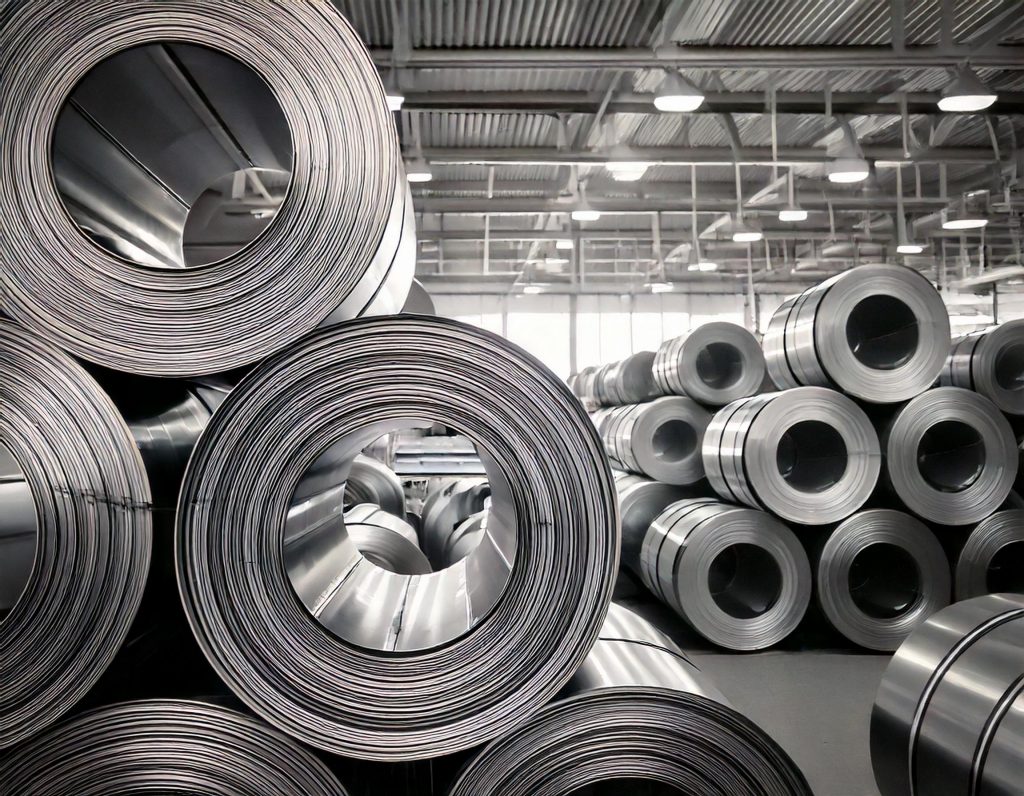
While there are many potential tactics for increasing costs, the primary ways labs may inflate fees generally revolve around factors like hidden charges, unnecessary tests, sample preparation fees, additional reporting costs, and more. Here’s a closer look at these key practices and how they can impact your expenses:
Unnecessary Testing and Bundled Services
Material testing laboratories may suggest additional tests that are not necessary for your specific project requirements. By bundling these non-critical tests with the important ones, they can increase the overall cost without providing significant added value. For instance, a lab might recommend comprehensive chemical analyses for materials that only require basic mechanical testing, leading to unnecessary expenses.
Lack of Transparent Pricing and Hidden Fees
Some laboratories do not provide a clear breakdown of their pricing structures. Hidden fees, such as administrative costs, processing charges, or consultation fees, can inflate the final bill. A lab might charge additional fees for data interpretation or report customization without prior disclosure, leaving clients with unforeseen expenses.
Rush and Priority Testing Fees
Expedited testing services often come with substantial additional fees. Labs may charge extra for rush analyses, even if the faster turnaround does not significantly reduce wait times. For example, a laboratory might impose a 200% surcharge for same-day results, as outlined in their rush sample policy.
Charges for Sample Preparation and Handling
Fees for sample preparation and handling can add up, especially if they are not disclosed upfront or if special preparation methods are recommended unnecessarily. A testing laboratory might charge extra for complex sample preparation techniques that are not required for the specific tests.
Data Interpretation and Reporting Customization Fees
Analyzing test results and customizing reports to specific formats costs extra. Labs may bill clients for the time spent interpreting data or customizing reports to meet particular standards. For example, a laboratory might impose additional fees for providing detailed analyses or individualized reporting formats.
Storage and Retention Fees
Long-term storage of samples or data, especially if not discussed in advance, can cost unexpectedly. Labs may charge for retaining samples beyond a specified period or storing data for extended duration. For instance, a laboratory might impose monthly storage fees for samples kept beyond the agreed time frame.
Compliance and Certification Surcharges
Obtaining specific certifications or compliance reports can incur additional costs, particularly in regulated industries where certification is mandatory. Laboratory facilities may charge extra for providing documentation that verifies industry standards compliance. For example, a laboratory might impose surcharges for issuing certificates of analysis or compliance reports required for regulatory purposes.
Calibration and Equipment Maintenance Fees
Some labs may pass the costs of equipment calibration and maintenance directly to clients, claiming it ensures accuracy but driving up expenses. For instance, a laboratory might charge clients for routine calibration of testing equipment used in their projects.
Re-testing Due to Lab Errors or Faulty Equipment
Errors in testing procedures or malfunctions in lab equipment may require samples to be re-tested at the client’s expense, especially if the lab does not admit fault. For example, if a test result is inconclusive due to equipment failure, the lab might charge for re-testing the sample.
Consultation and Advisory Service Fees
If lab experts provide additional insights or consultation on results, these services are often billed separately, adding to the overall cost of testing. For instance, a laboratory might charge hourly rates for expert consultations or detailed explanations of test results.
Ways to Avoid Overcharging by Material Testing Laboratories
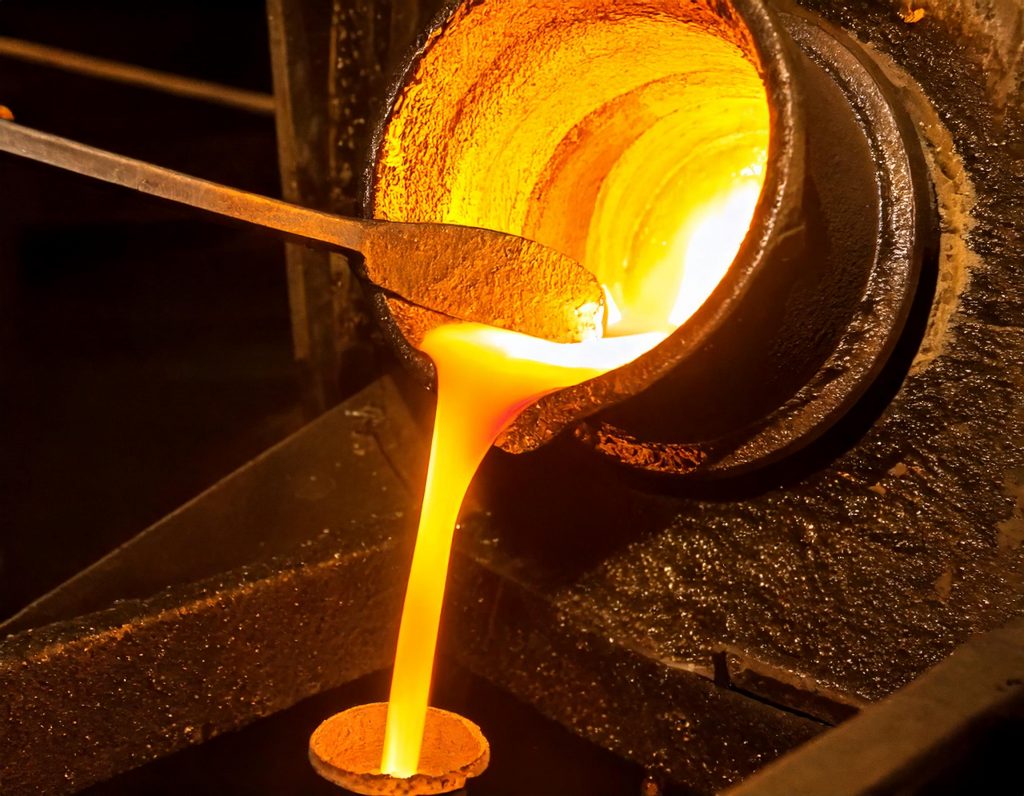
Knowing the common practices that can lead to inflated fees is only part of the solution. To truly protect your budget, you need to understand what specific steps to take to guarantee that you won’t be unpleasantly surprised by extra charges at the end of your work with a material testing laboratory. Keeping overcharges to a minimum can be achieved through the following strategies:
Establish Clear and Transparent Pricing from the Start
Begin by requesting a detailed quote that itemizes costs for each test, including sample preparation, reporting fees, and any additional services. This transparency helps identify and question unclear charges. For instance, some labs charge extra for data interpretation or customized reporting formats. Directly inquire about potential hidden fees, such as administrative, storage, or consultation costs, and make sure these are either included or explicitly excluded from the initial quote. In industries requiring certification, discuss these fees upfront to confirm they’re justified and necessary for your project, avoiding unneeded certification costs.
Define the Scope of Testing and Services Needed
Engage in a clear conversation with the lab about which tests are required for your project’s objectives. By identifying only the necessary tests, you can avoid bundles or additional testing that may not add meaningful value. For example, some establishments might recommend comprehensive chemical analyses for materials that only require basic mechanical testing. Additionally, if your project doesn’t require expedited testing, opt for standard timelines to avoid costly rush fees. Confirm how the lab will handle sample preparation, as advanced preparation methods can add costs. If standard preparation meets your needs, specify this to prevent unnecessary charges.
Set Specific Terms for Data Reporting and Equipment Use
Clarifying your reporting needs in advance can control costs. In many cases, standardized reports are adequate, so confirm if custom formatting is needed. Discuss calibration and maintenance policies with the lab, as some may pass these costs on to clients separately. Labs with built-in maintenance fees often provide a more predictable cost structure, helping you manage expenses effectively.
Address Potential Issues with Retesting, Storage, and Advisory Fees
Understand policies around retesting and storage. Ask if the lab will cover retesting costs in cases of lab error or equipment malfunction, preventing additional expenses caused by lab mistakes. If long-term storage of samples or data isn’t required for regulatory purposes, consider storing them yourself to avoid ongoing storage fees. Clarify whether advisory or consultation services from lab experts are included in your initial costs or billed separately. Setting clear expectations about consulting fees helps you control your budget.
Maximize Savings with Bulk Discounts and Local Options
For frequent or high-volume testing, inquire if the lab offers bulk discounts or loyalty pricing. Many testing laboratories provide reduced rates for large orders, leading to substantial savings over time. For example, some laboratories offer discounts for bulk testing, which can save significant amounts. When working with international labs, be mindful of currency fluctuations and foreign transaction fees. Opt for local labs or negotiate fixed rates in your local currency to better manage these costs.
Invest in Your Own Testing Equipment
While purchasing testing machines, hardness testers, and other quality assessment tools may initially seem costly, owning equipment offers significant savings over time. Relying on external testing facilities for consistent assessments can lead to high cumulative fees, especially with regular testing requirements. By equipping your lab with purchased devices, you avoid outsourcing costs and gain direct access to accurate, reliable data whenever needed, thereby reducing overhead and increasing control over your quality processes.
How Setting Up an In-House Material Testing Lab Saves Money
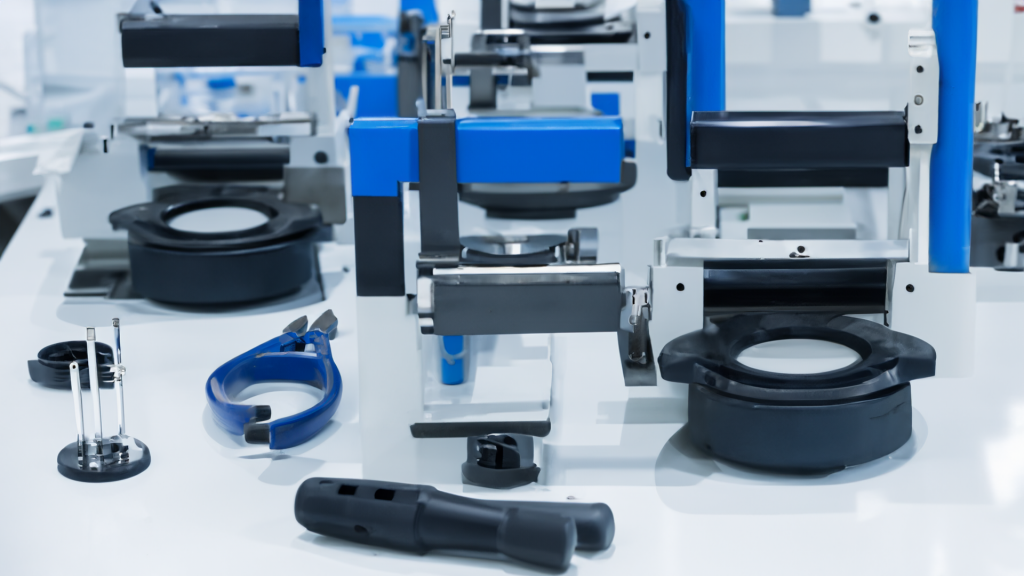
Establishing an in-house material testing laboratory can be a cost-effective and efficient solution for businesses that require continuous testing, especially as production demands grow. For companies in industries like metal frame production for construction, where the selection of metals and frame designs is constantly expanding, relying on external labs can lead to overcharging and inconsistent results, which disrupt operations and increase costs.
Setting up your own lab offers several strategic benefits, including long-term cost savings by reducing reliance on external testing services. On-site testing also means immediate turnaround times, eliminating delays caused by sample transport and lab schedules, which improves quality control and allows quick production adjustments. Additionally, an in-house testing facility provides greater flexibility and customization, allowing you to adapt testing protocols to your specific production standards for more reliable outcomes.
To set up an in-house material testing lab, several key components must be in place. First, specialized equipment is required, including UTMs, specimen preparation machines, spectrometers, and other tools suited to your testing needs and industry standards. Qualified personnel are also very important, as trained technicians and quality control specialists guarantee accurate testing and reliable data analysis. Lab space must be appropriately designed to support efficient workflows, including safety protocols and accessibility. Additionally, implementing quality management systems with standardized procedures is necessary for maintaining consistency and reliability in testing. Finally, a laboratory must be certified to guarantee compliance with industry regulations, as well as to verify that its operations are in keeping with current practices.
The Role of Quality Equipment in Material Testing Laboratories
In any material testing lab, having the right equipment is the foundation for accurate and consistent results. Each type of material, from metals to plastics, requires specialized testing tools to meet industry standards and guarantee product quality. Equipment like tensile testers, hardness testers and thermal analyzers allow laboratories to assess critical material properties, providing data for quality control, compliance, and innovation. Without the right equipment, laboratories cannot achieve the precision and reliability required in today’s market-driven industries.
As a company that has supplied material testing equipment for many years, we understand the importance of effective and reliable testing procedures. That’s why we offer our customers a comprehensive range of testing equipment, covering many types of materials, including metal, plastic, rubber, cement and concrete, soil mechanics, and rock mechanics.
Listed below are a few basic tools that you may find useful if you decide to establish your own laboratory.
Universal Hardness Tester for Vickers, Rockwell, and Brinell
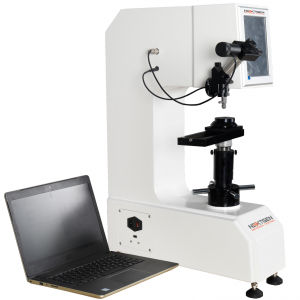 The Universal Hardness Tester for Vickers, Rockwell, and Brinell is a comprehensive, all-in-one solution for hardness testing, designed to provide precise and repeatable measurements across three major testing methods: Vickers, Rockwell, and Brinell. This tool is extensively used in material testing laboratories in industries requiring accurate assessments of material hardness, such as metalworking, manufacturing, and quality assurance.
The Universal Hardness Tester for Vickers, Rockwell, and Brinell is a comprehensive, all-in-one solution for hardness testing, designed to provide precise and repeatable measurements across three major testing methods: Vickers, Rockwell, and Brinell. This tool is extensively used in material testing laboratories in industries requiring accurate assessments of material hardness, such as metalworking, manufacturing, and quality assurance.
With its advanced features, including an 8″ LCD touchscreen, CCD camera, and automatic measuring software, this tester offers user-friendly operation and consistent accuracy. Its closed-loop load system eliminates traditional weights, while automated test force correction maximizes precision. Meeting standards like ISO 6507, ISO 6508, and ASTM E18, this tester offers reliability and compliance with industry requirements. Equipped with NIST-certified consumables and password protection for setup parameters, this universal tester stands out as a valuable asset in laboratories dedicated to quality control and compliance, enabling thorough and efficient testing procedures across a broad selection of materials.
Charpy and Izod Automatic Impact Testing System
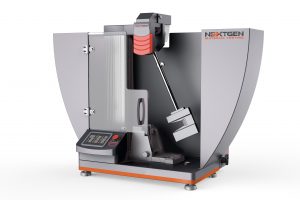 The Class J – Charpy and Izod Automatic Impact Testing System – 1J to 50J is an advanced impact testing machine designed specifically for Charpy and Izod impact tests on plastics and rubber specimens. This system provides high precision in assessing material toughness and durability, which is important for industries that require high standards of material performance. Equipped with a tensile impact pendulum, it can perform tests on different types of plastic films and sheets, handling an array of levels of energy levels for specific testing needs.
The Class J – Charpy and Izod Automatic Impact Testing System – 1J to 50J is an advanced impact testing machine designed specifically for Charpy and Izod impact tests on plastics and rubber specimens. This system provides high precision in assessing material toughness and durability, which is important for industries that require high standards of material performance. Equipped with a tensile impact pendulum, it can perform tests on different types of plastic films and sheets, handling an array of levels of energy levels for specific testing needs.
The machine’s high-resolution shaftless encoder ensures minimal energy loss and precise angle measurements, while the intuitive touchscreen display allows easy setup of specimen dimensions, pendulum energy, units, and calibration data. The interchangeable pendulum feature makes it adaptable to Charpy, Izod, and tensile impact tests, increasing its applicability to numerous analyses. Designed with user-friendliness and efficiency in mind, this impact testing system is ideal for laboratories aiming for accurate, repeatable results for many types of plastic and rubber materials.
Your Path to Reliable and Affordable Material Testing
Due to today’s highly competitive industries, understanding and managing testing expenses is a must for any organization that relies on material verification. To summarize, we’ve explored how material testing laboratories contribute significantly to assuring product quality, safety, and regulatory compliance. We have highlighted some common tactics labs use to inflate costs. By recognizing and proactively addressing potential overcharges, you can avoid unnecessary expenses and maintain a more predictable budget. Key strategies include setting transparent pricing expectations, defining the exact scope of testing, and maximizing savings through bulk discounts or local testing options.
For businesses that require frequent testing, establishing an in-house material testing laboratory can be a smart long-term investment. Building your own lab provides benefits like immediate access to test results, improved quality control, and the ability to customize testing protocols to meet specific needs. With important components such as specialized equipment, skilled personnel, a well-designed workspace, quality management systems, and appropriate certifications, your own lab can be an invaluable asset to support efficient and cost-effective production.
At NextGen Material Testing, we are your trusted partner in setting up your own testing lab. We offer a comprehensive range of high-quality testing equipment that covers all your needs—from universal hardness testers to impact testing systems and more. If you’re interested in specific products or have questions about the setup process, you can request an online quote or contact us directly. We are here to help you make the right choice and make sure that your testing lab operates efficiently and reliably!
